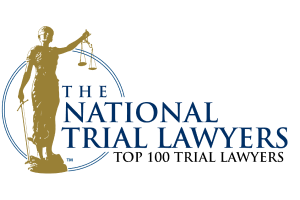The Nursing Home Reform Act
The federal government established the Nursing Home Reform Act (NHRA) in 1987 to ensure nursing home residents receive the “highest practicable” mental, physical, and psychosocial well-being. The act also enforces quality care and the provision of certain services, such as periodic assessment and unique, comprehensive care plans for each resident. If a nursing home violates any of the guidelines set forth by the NHRA, the state may impose remedies, and victims may be entitled to compensation.
Combating Nursing Home Abuse & Neglect through Legislation
In 1986, Congress asked the Institute of Medicine to conduct a study evaluating the quality of care in U.S. Medicare and Medicaid nursing homes. The study found that nursing home residents were often neglected, abused, and cared for inadequately. In order to address these issues, the Institute of Medicine proposed a series of nursing home reforms, many of which became law in 1987 as part of the Omnibus Budget Reconciliation Act.
Nursing home facilities receiving funding for Medicare and Medicaid services are required to meet criteria set forth in the NHRA. The state must conduct unannounced surveys that include resident interviews to ensure substantial compliance. These surveys must be conducted at irregular intervals occurring no more than 15 months apart. If a specific complaint is filed, the state must also conduct a targeted survey to investigate the complaint.
Residents’ Bill of Rights
Under the NHRA, nursing home residents are entitled to a basic set of rights protecting privacy, individuality, dignity, and medical needs. These include the right to:
- Privacy
- Accommodation of physical, mental, and psychosocial needs
- Communicate freely
- Be treated with dignity
- Be free from mistreatment, abuse, and neglect
- Exercise self-determination
- Voice grievances without facing reprisal or discrimination
- Be free from physical restraints
- Participate in family and resident groups
- Participate in his or her own care plan, including advance notice of changes in treatment, care, or facility status
Georgia also has its own Bill of Rights for Residents of Long Term Care Facilities, which reinforces and compliments the federal Bill of Rights. If a nursing home fails to appropriately care for its residents, it may be in violation of both state and federal law.
Contact KWF for More about Nursing Home Residents’ Rights
If you believe a relative or loved one is the victim of a NHRA violation, please contact the legal team at Katz Personal Injury Lawyers to schedule a free initial consultation. We can help you determine the best course of action to protect your loved one, and obtain compensation for any injuries or damages suffered up to this point. We represent clients needing a nursing home abuse lawyer across the state of Georgia, including Atlanta, Macon, Savannah, Augusta, Columbus and Albany. Please call us at (404) 461-0101.







